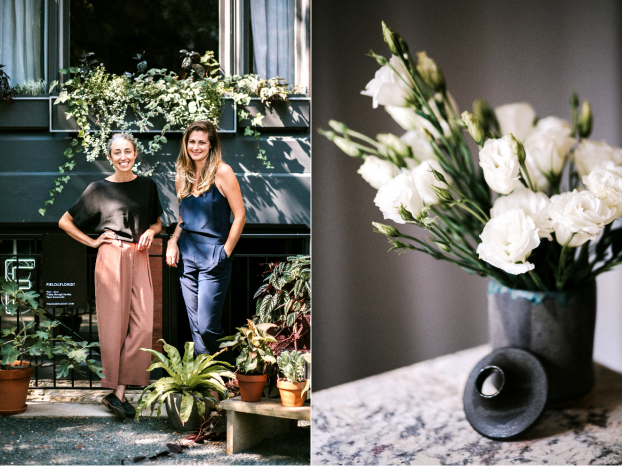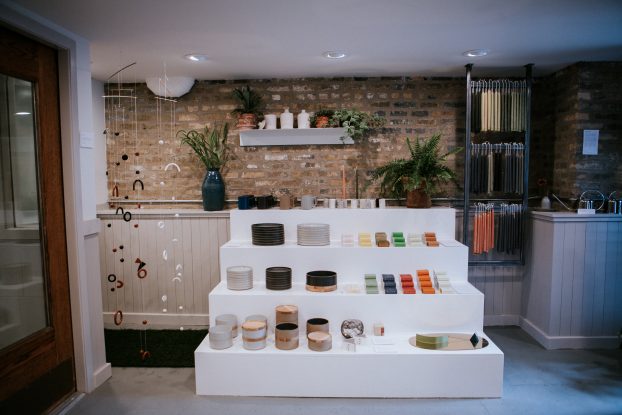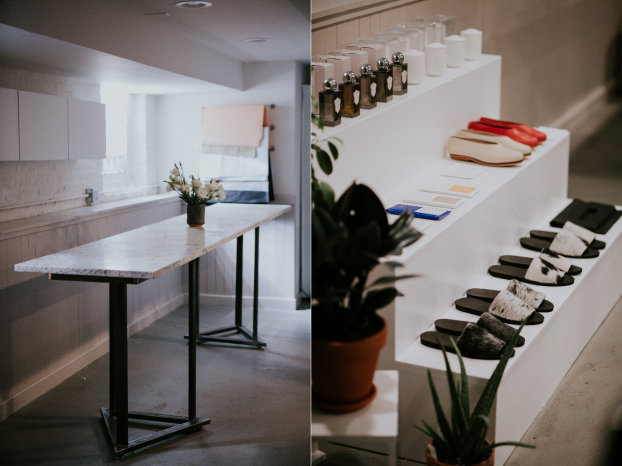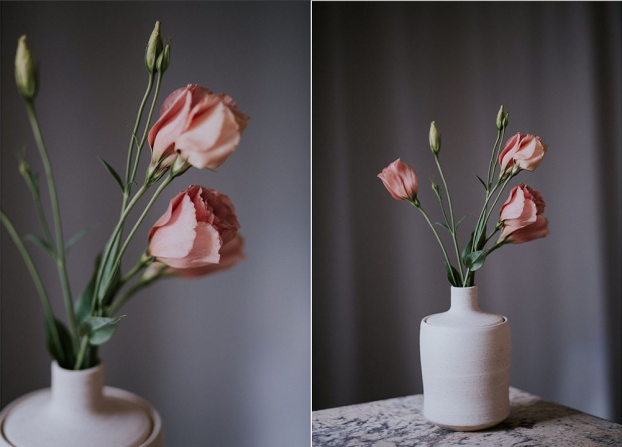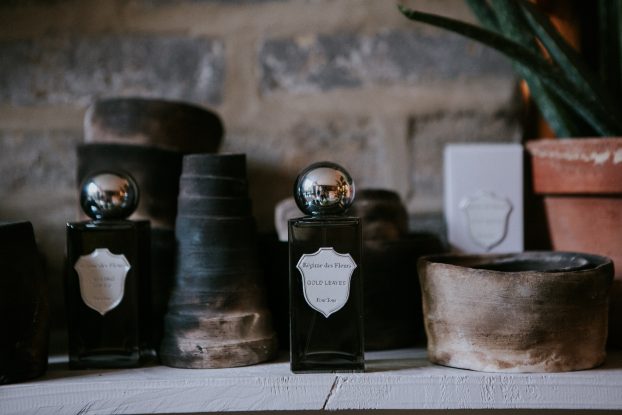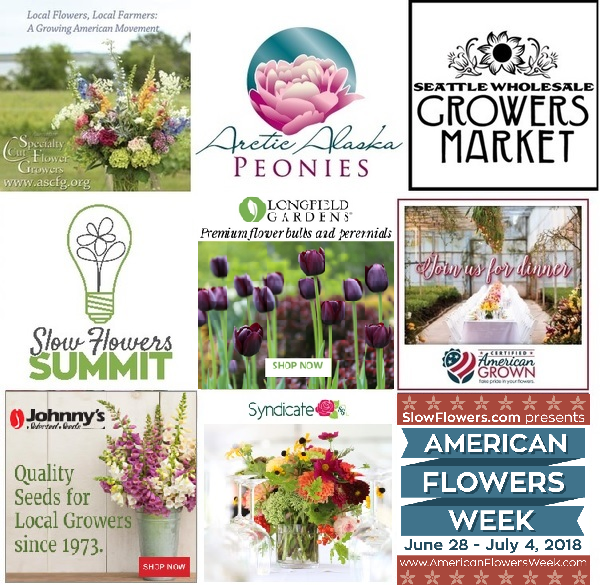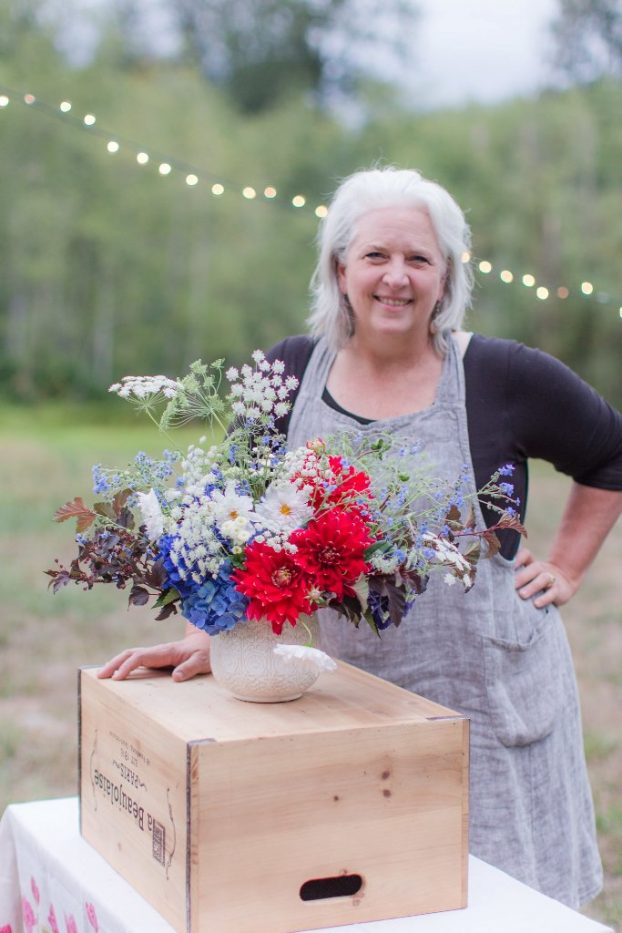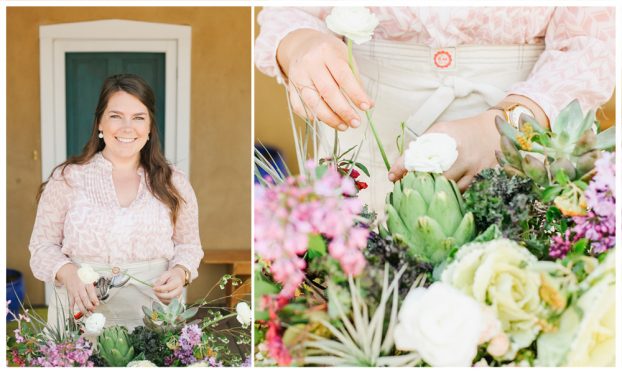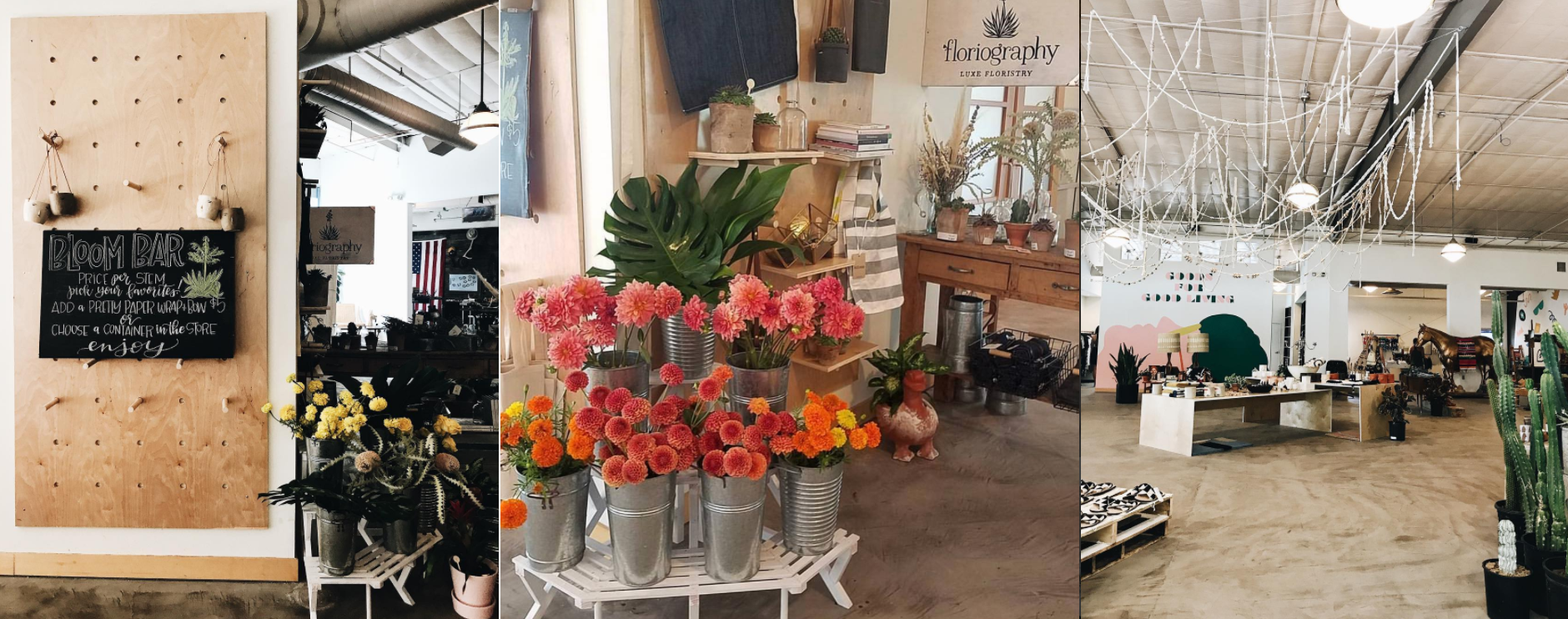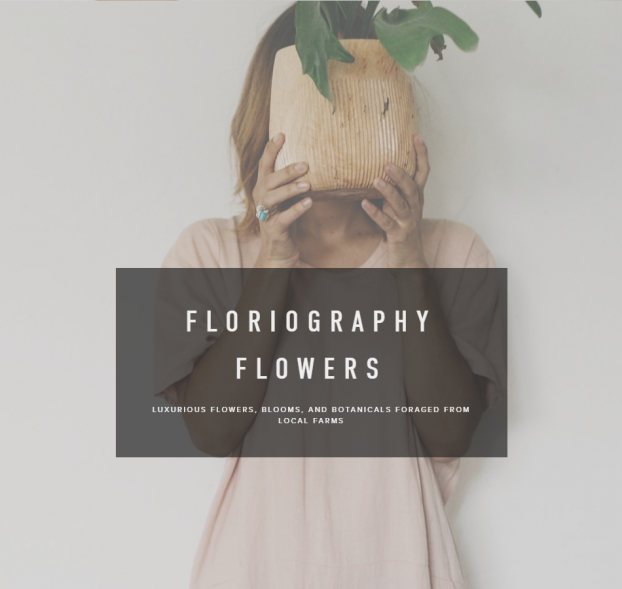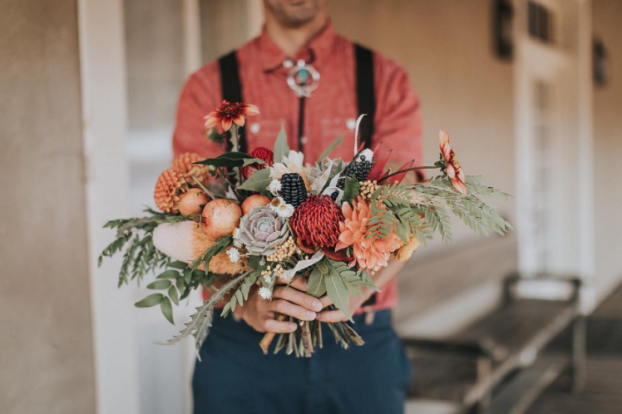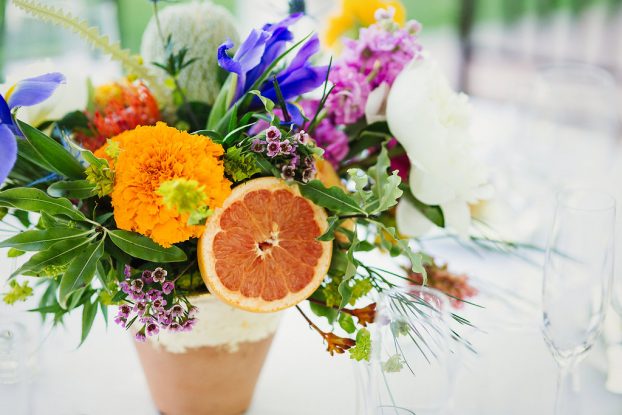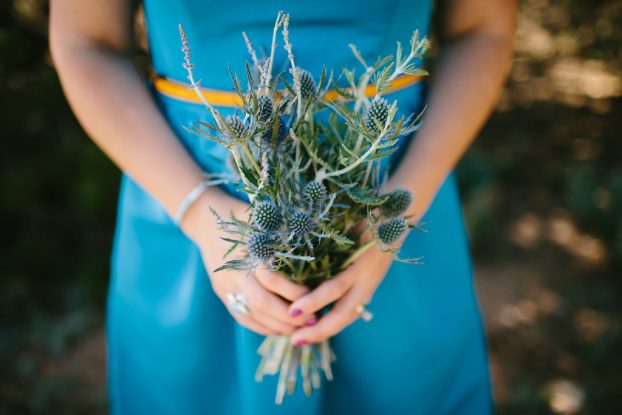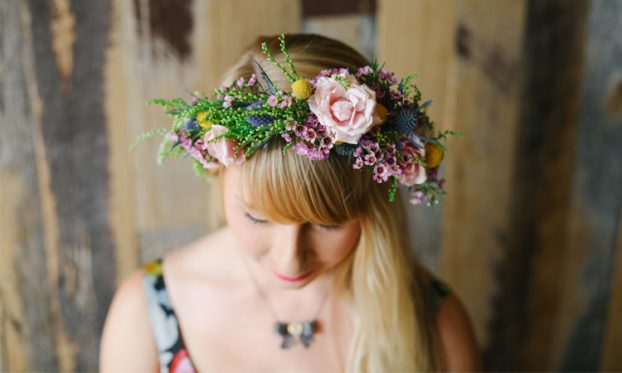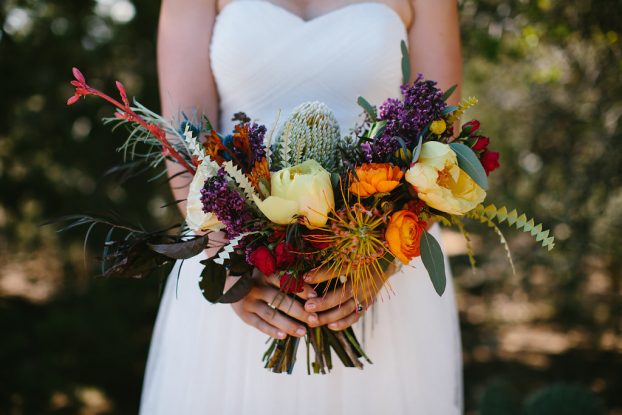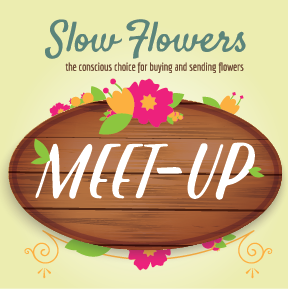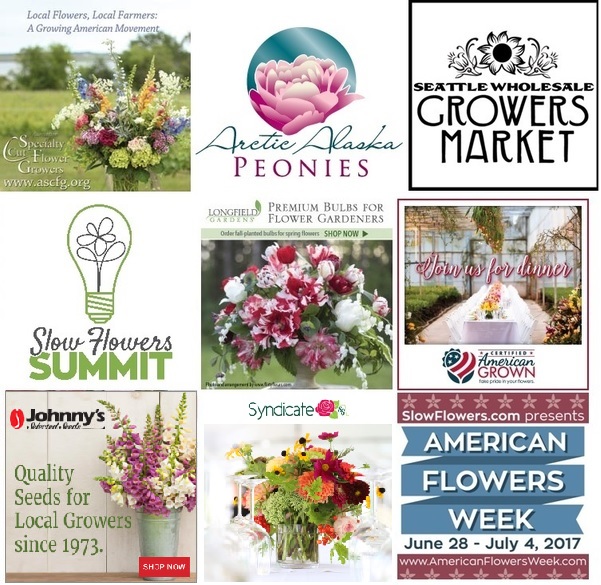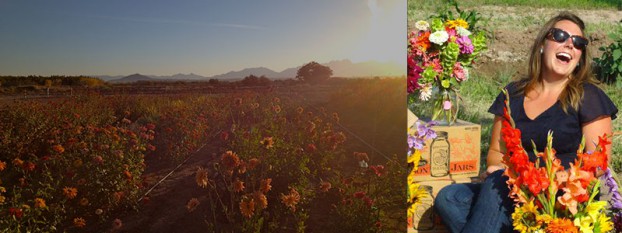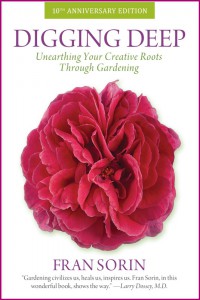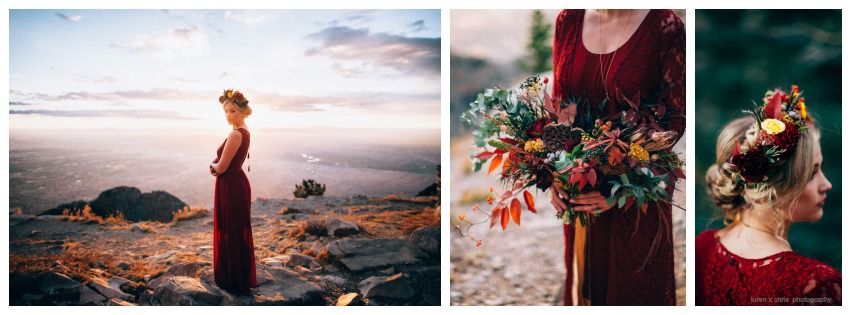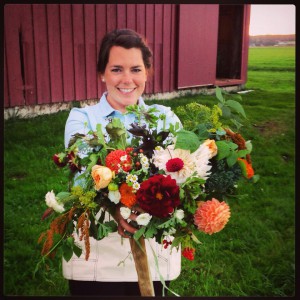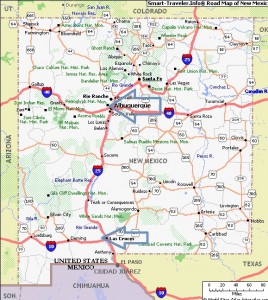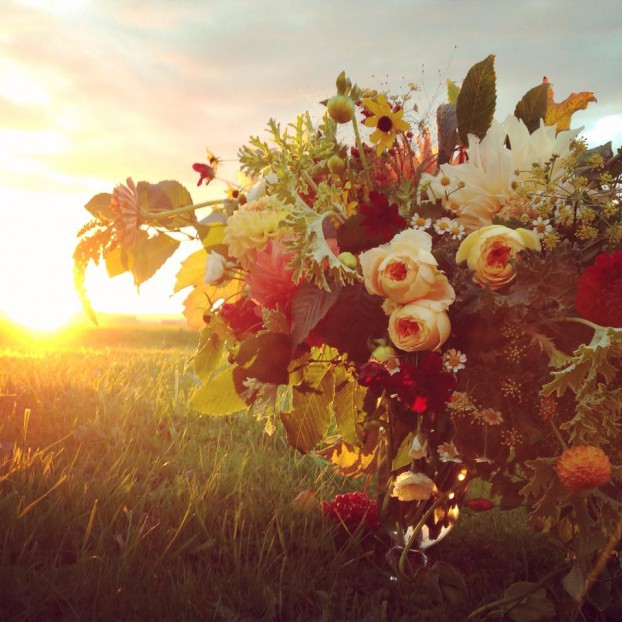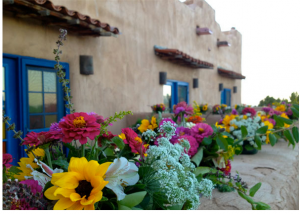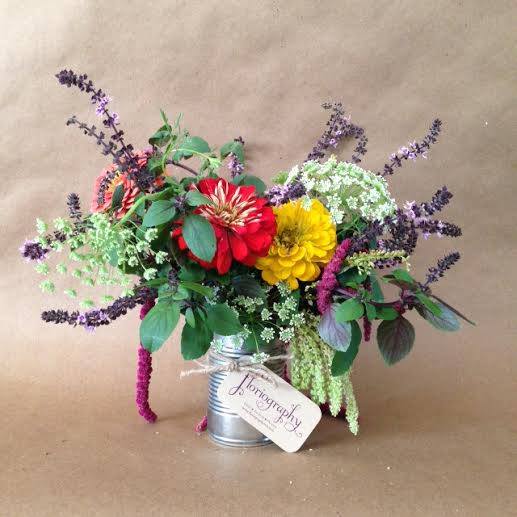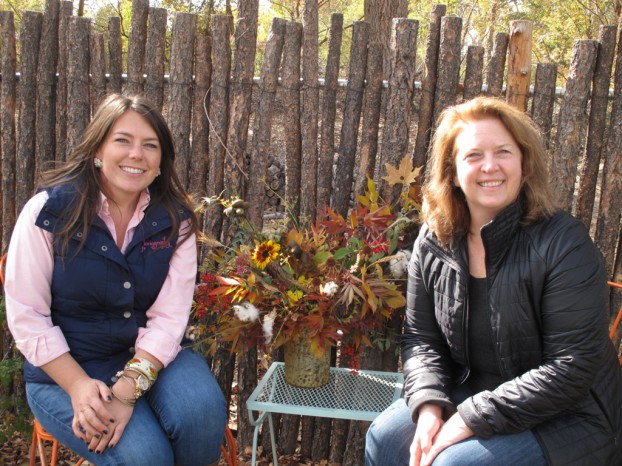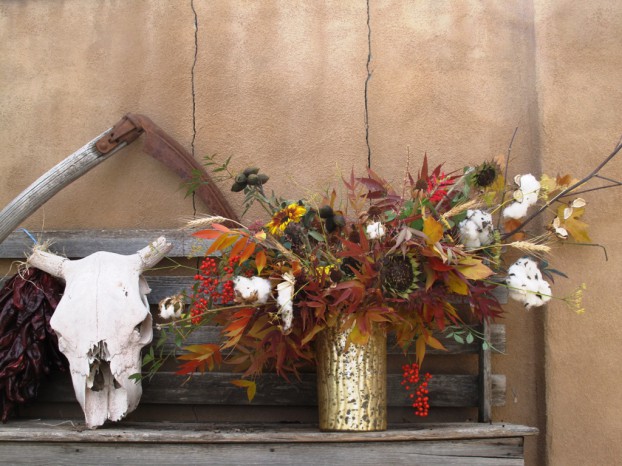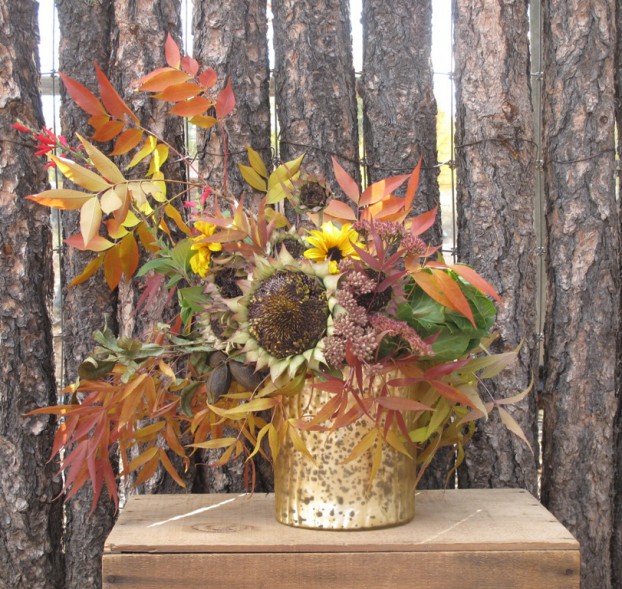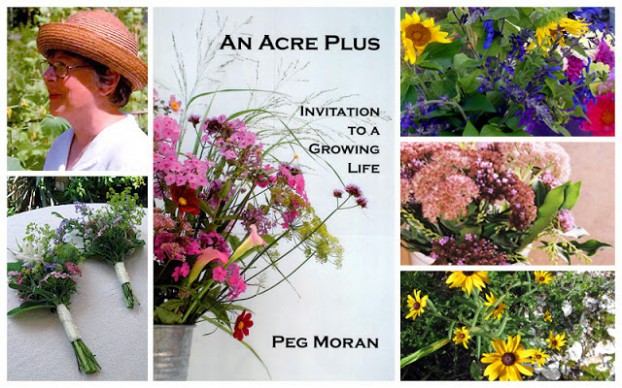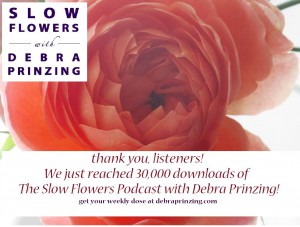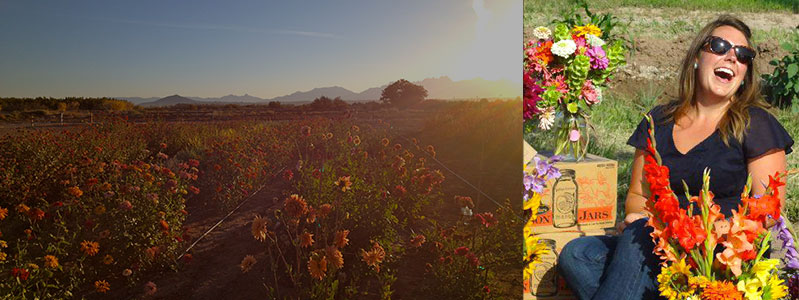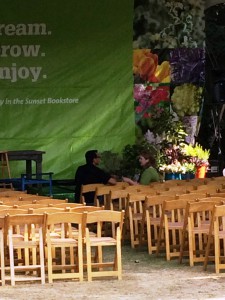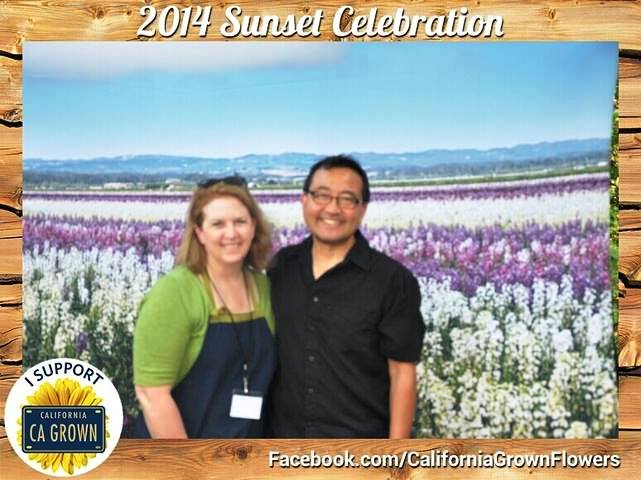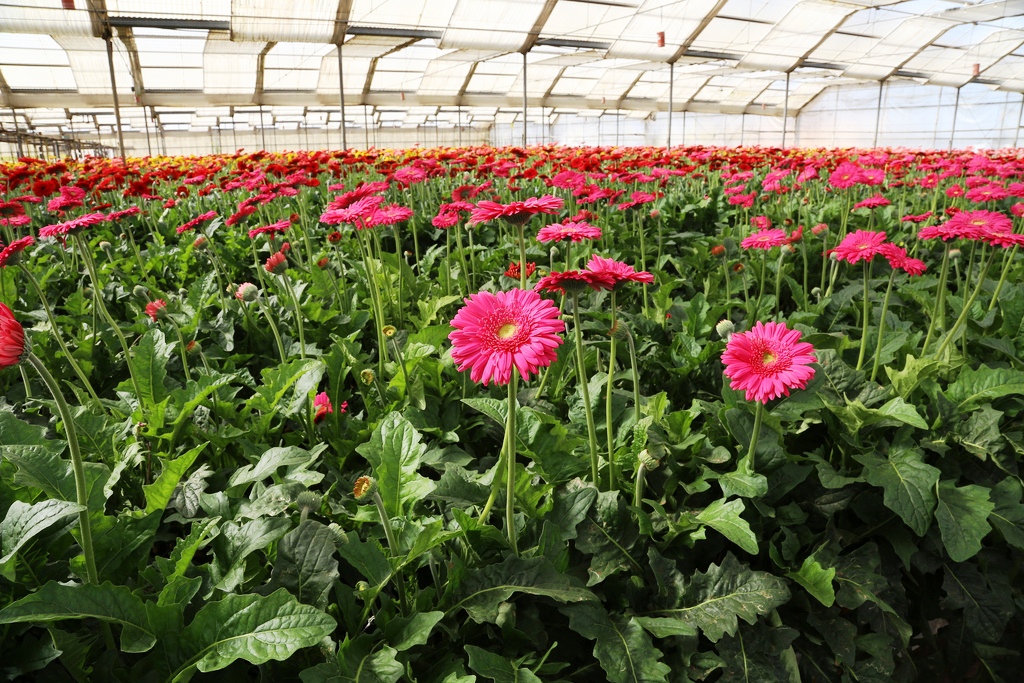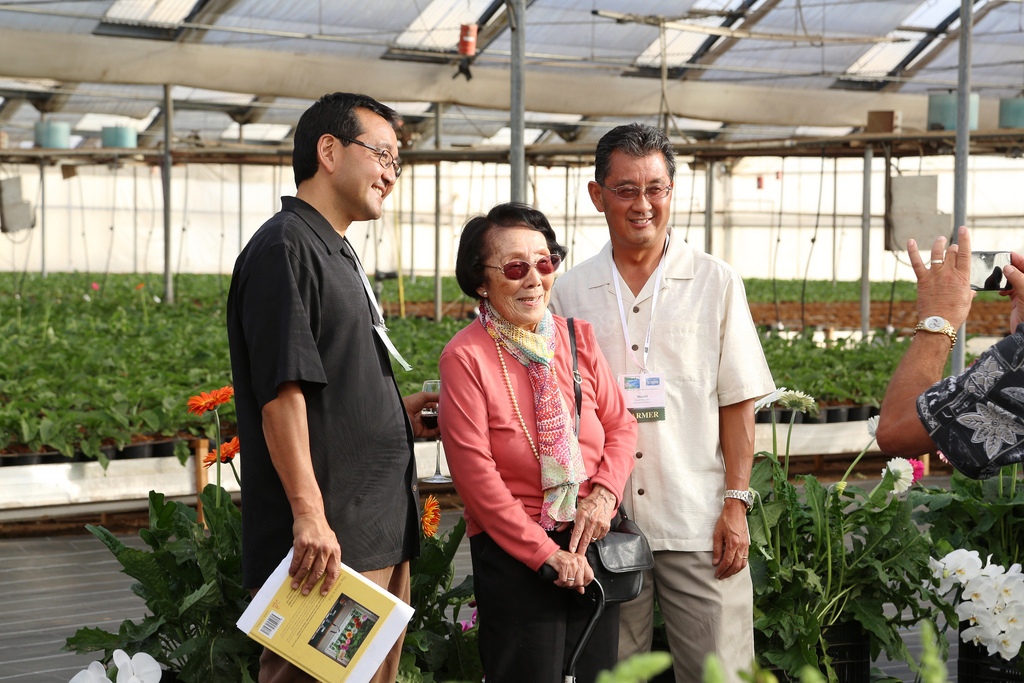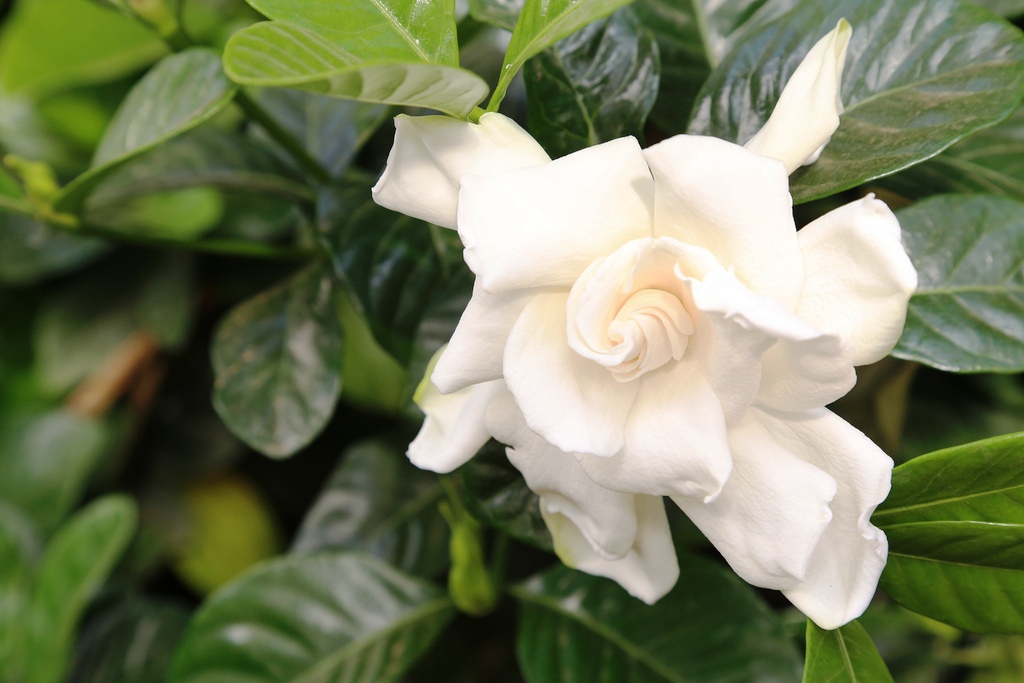Podcast: Play in new window | Download
Subscribe: Apple Podcasts | Podcast Index | RSS | More
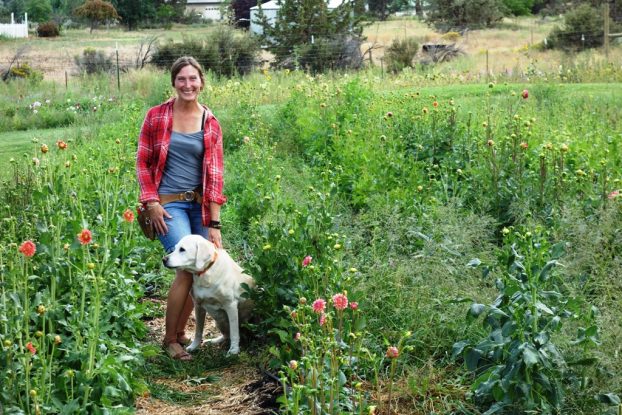
Located in Central Oregon, Bend is an incredibly beautiful place – across the mountains from where I live, so an entirely different landscape. Yes, the area is considered high desert, but the local agriculture scene for food and flowers is vibrant and active.
Last week took me there for a two-day getaway and you can be sure I wanted to visit a few flower growers during the trip. Today, you’ll join me on one – a tour and conversation with Jennifer Ladd of Sweet Posy Flowers.
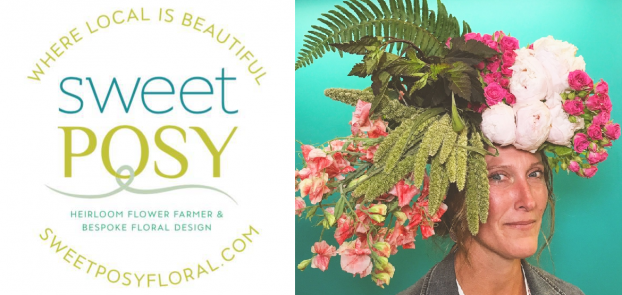
I thought the last time I saw Jen was in 2017 when she attended (and contributed flowers) to the first Slow Flowers Summit held in Seattle. But she reminded me that we had a very brief “passing hello” at the Northwest Flower & Garden Festival this past February. Turns out, Jen helps a family member set up a plant sale booth at the flower show – so we’re going to be more intentional about connecting there next year.
But what a treat to drive just about 10 minutes east of Bend, turn off the highway onto a long, gravel driveway, and come upon fields of annuals surrounding a charming white cottage-style studio and two sturdy high tunnels also filled with blooms.
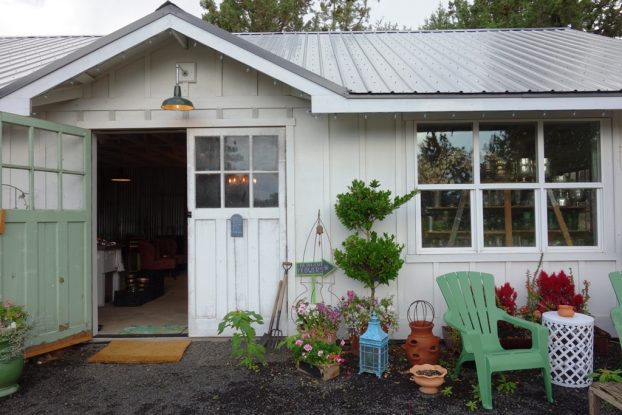
I arrived at Sweet Posy Floral, was greeted by two friendly dogs and today’s bubbly guest.
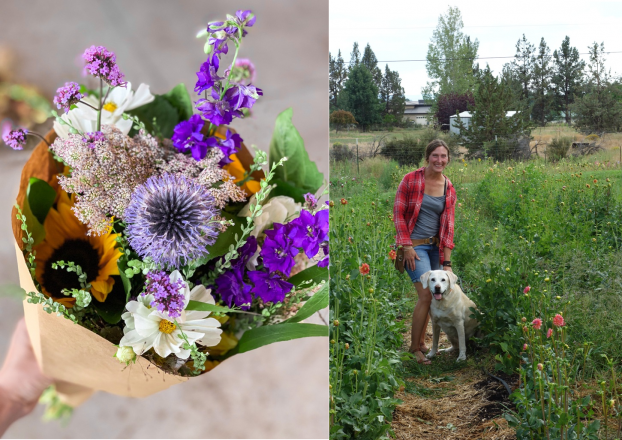
Jen aptly describes Sweet Posy Floral as an heirloom flower farm and bespoke floral design studio. She owns the farm with her firefighter husband Brandon Ladd, about whom she says, “I truly wouldn’t have been able to bring this dream to fruition without him. He works his full-time shifts at the fire station and comes home and works the farm and helps me with logistics of wedding setups.” A true farm-him partner for the farm-her.
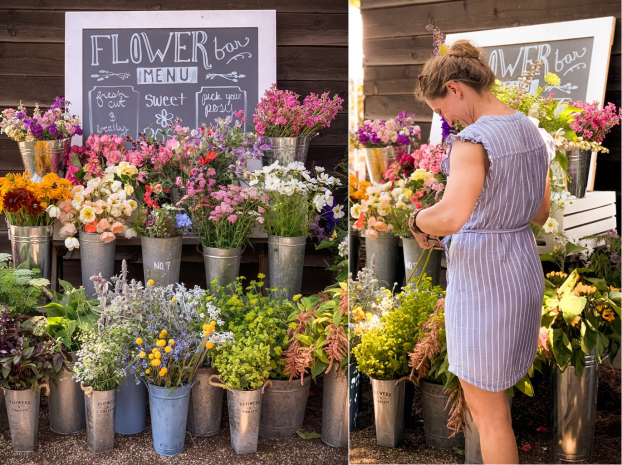
Jen shares this on her “about” page:
I’ve loved flowers my entire life. As a child, I would go with my grandmother into her garden and watch her love and cultivate the plants, talking to them as she went. “You have to talk to them because it’s a relationship,” she’d tell me. “They’ll only grow and blossom for you if you love them.
When it was time to plan my own wedding, second only to the groom and the dress in importance was the flowers. Destiny brought me to a wonderful woman on a glorious flower farm who set me loose with shears and buckets to cut as many of her beautiful heirloom flowers as I wanted to make my day complete. In those fields, surrounded by the bright blooms, I realized this is what I’d love to do.
The dream of sharing beautiful, sustainable, local flowers is what Sweet Posy is all about.
Identical in idea to the slow food movement, we believe in the slow flowers movement. We believe that a bouquet can come from a fifty-mile radius, even in Central Oregon’s climate. We believe that special, unique heirloom flowers can be accessible even if they aren’t bred to withstand weeks of shipping. We believe that a wider variety of flowers leads to a wider variety of floral visions we can make reality.
Local is beautiful, when local means real flowers that are pollinated by real bees and destined to brighten the days of real people who love supporting their local farmer artisans. Welcome to Sweet Posy’s growing world!
Love those sentiments!
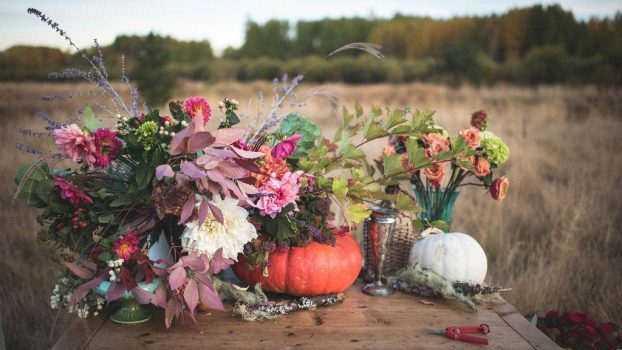
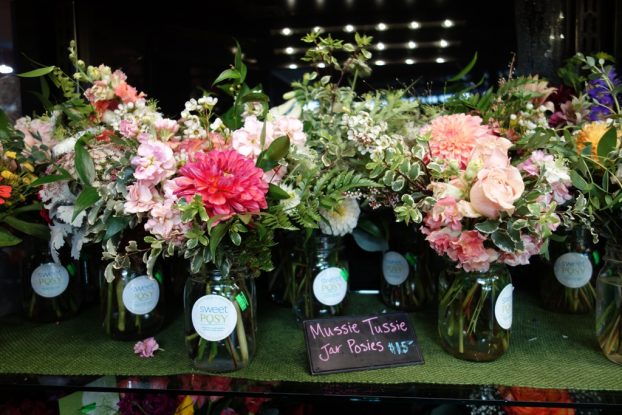
Even though she was up at dawn to harvest, make market bouquets, deliver them to Market of Choice, a local grocery store customer, and tend to countless other farm projects, when I arrived at Sweet Posy last weekend, Jen greeted me with a warm welcome as if she had not a care in the world. She gave me a tour of the fields, the high tunnels and the studio. We shared a glass of pink champagne and noshed on some delicious appetizers – and finally turned on the recorder to grab this interview.
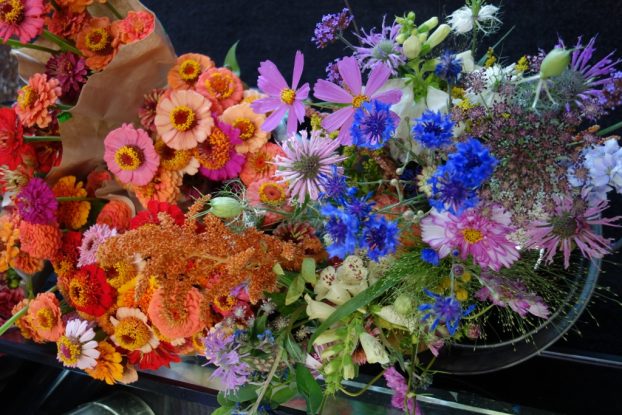
Find and follow Jen Ladd and Sweet Posy Floral at these social places:
Sweet Posy Floral on Facebook
Sweet Posy Floral on Instagram
Sweet Posy Floral on Pinterest
I’m so pleased that you joined me today! Finding balance is a theme we keep coming back to on this Podcast –a balance between passion and wellness; between creative urges and sustaining a creative livelihood. Neither my guests nor I have all the answers, but we strive for honesty and transparency in our dialogue and we want you to be part of that conversation.
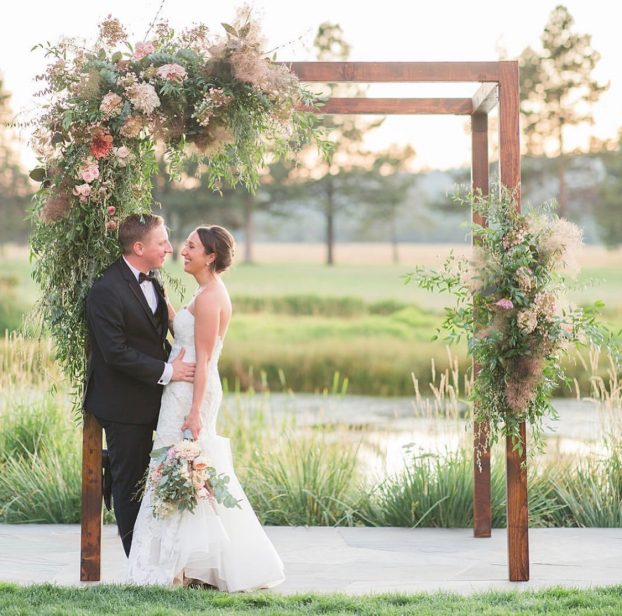
Another constant theme of the Slow Flowers Podcast is community. We didn’t have time to share the story of Jen’s first CSA week ever, but suffice it to say, it involved the biggest disaster a new flower farmer could face – a freak June frost that decimated her entire early season flower crop.
Jen put out a call for advice to others she had met through the PNW Cut Flower Growers annual gathering and several flower farmers not only jumped in with encouragement and advice, but farms actually gifted Jen and her husband Brandon enough flowers to cover week one and week two of their CSA commitments.
Those flower farmers have become good friends to Jen and Brandon, and I just want to acknowledge them today – Erin McMullen and Aaron Gaskey of Raindrop Farms in Philomath and Beth and Jason Syphers of Crowley House Flower Farm in Rickreal – both in the Willamette Valley. To this day, Jen wonders if she would have given up in discouragement if the community of Oregon flower farmers hadn’t stepped in to help support Sweet Posy Floral through that natural disaster. Of course, both of those flower farms are part of the Slow Flowers Community so it was no surprise to learn of this story. And I know for certain that Jen and Brandon would do the same thing to pay it forward with a fellow grower or florist in need.
Thank you, Jen, for being that voice of honesty this week. I love your work, the beautiful life you’ve shaped for yourself, and your grit balanced with lovely artistic expression.

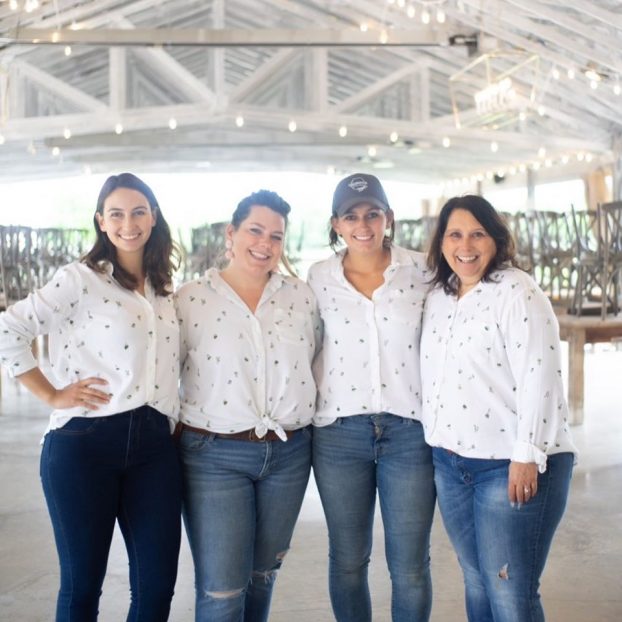
Our theme for 2019 – Fifty States of Slow Flowers – continues today, with Diane Calhoun and Susannah Calhoun, mother-daughter farmer-florists of Calhoun Flower Farm in Las Cruces, New Mexico.
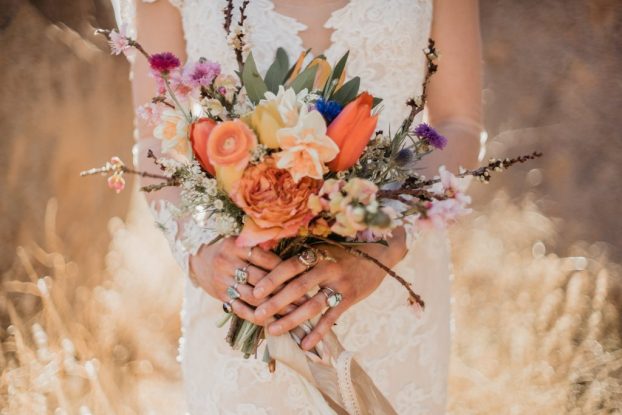
In the podcast, you’ll hear me flub a couple of times and call their farm: Calhoun Family Farm. We laughed because it’s certainly that, too. Theirs is a farming family. Sister Lillian Calhoun is a frequent support on the business side of things and you’ve actually met Diane’s daughter and Susannah’s sister Emily Calhoun as a past guest of this podcast on two occasions – Emily owns FloriographyNM, based in Albuquerque.
You can meet Emily in Episode 176 (January 2015) and in a follow-up interview in Episode 317 (October 2017)

Calhoun Flower Farms is boutique floral enterprise located in the magnificent Mesilla Valley of New Mexico. Diane and Susannah grow and distribute their field grown flowers for the floral trade, consumers, and events flowers throughout NM and West Texas. They offer farm tours by appointment and often rent their farm for photography sessions.
Find and follow Calhoun Flower Farms at these social places:
Calhoun Flower Farms on Facebook
Calhoun Flower Farms on Instagram
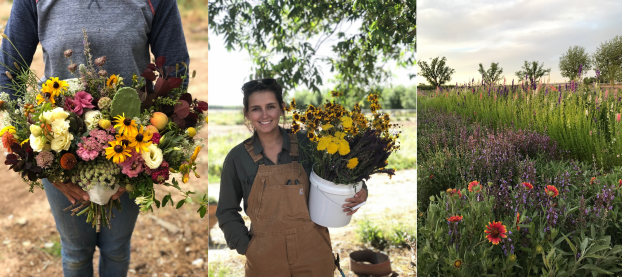
I am so grateful to you for joining me and for spending your time listening to the Slow Flowers Podcast today. Thank you to our entire community of flower farmers and floral designers who together define the Slow Flowers Movement.
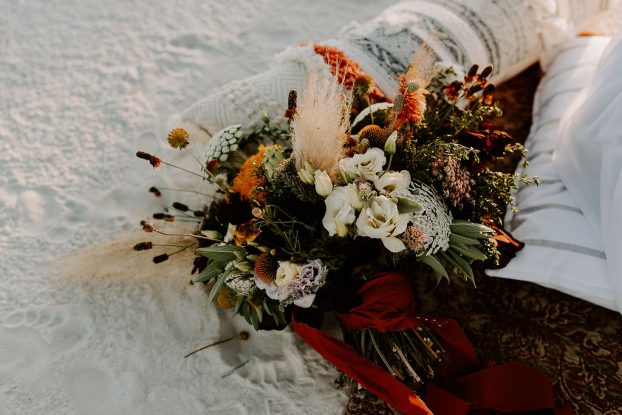
If you feel moved as I am to support the people of El Paso, Texas, some of whom work for and buy flowers from Calhoun Flower Farm, follow this link to join Slow Flowers in donating to the El Paso Community Foundation.
El Paso Community Foundation’s short-term goal has been to use donations to assist families and victims by paying for funeral, travel, and basic need expenses. Long term, the foundation wants to support the community’s need to heal as a collective while addressing the trauma people there have suffered as a whole. The Foundation has also established the El Paso Victims’ Education Fund – a scholarship fund for the children of those shot and injured or killed by the shooter on August 3, 2019. Your contribution will join others in providing tuition assistance and related expenses to college or university, or an established trade or vocational school. Learn more by searching the hashtag #elpasoSOstrong.
THANK YOU TO OUR SPONSORS
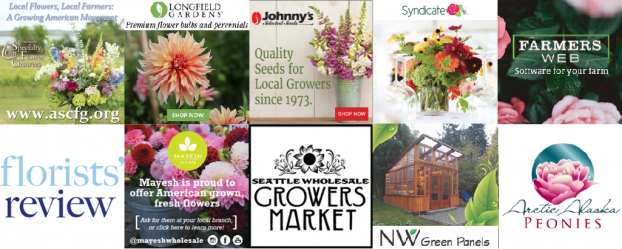
Florists’ Review magazine. I’m delighted to serve as Contributing Editor for Slow Flowers Journal, found in the pages of Florists’ Review. It’s the leading trade magazine in the floral industry and the only independent periodical for the retail, wholesale and supplier market. Take advantage of the special subscription offer for members of the Slow Flowers Community.
Arctic Alaska Peonies, a cooperative of family farms in the heart of Alaska working together to grow and distribute fresh, stunning, high-quality peony varieties during the months of July and August when the normal growing season is complete. Arctic Alaska Peonies operates three pack houses supplying peonies throughout the United States and Canada. Visit them today at arcticalaskapeonies.com
FarmersWeb. FarmersWeb software makes it simple for flower farms to streamline working with their buyers. By lessening the administrative load and increasing efficiency, FarmersWeb helps your farm save time, reduce errors, and work with more buyers overall. Learn more at www.farmersweb.com.
Syndicate Sales, an American manufacturer of vases and accessories for the professional florist. Look for the American Flag Icon to find Syndicate’s USA-made products and join the Syndicate Stars loyalty program at syndicatesales.com.

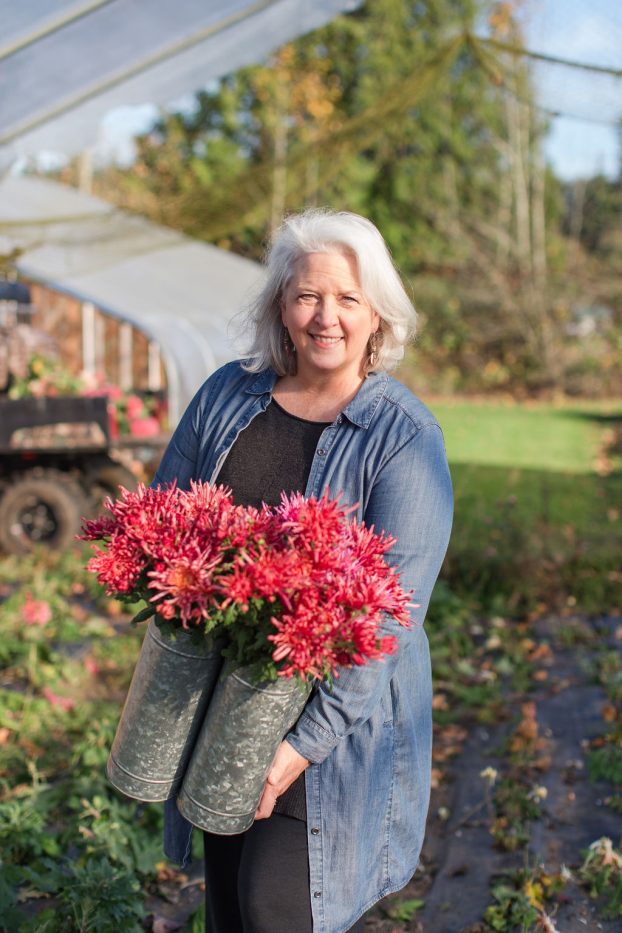
The Slow Flowers Podcast has been downloaded more than 505,000 times by listeners like you. Thank you for listening, commenting and sharing – it means so much.
I’m Debra Prinzing, host and producer of the Slow Flowers Podcast.
Next week, you’re invited to join me in putting more American grown flowers on the table, one vase at a time. And If you like what you hear, please consider logging onto iTunes and posting a listener review.
The content and opinions expressed here are either mine alone or those of my guests alone, independent of any podcast sponsor or other person, company or organization.
The Slow Flowers Podcast is engineered and edited by Andrew Brenlan. Learn more about his work at soundbodymovement.com.
Music Credits:
Castor Wheel Pivot; One Little Triumph; Betty Dear; Gaenaby
Blue Dot Sessions
http://www.sessions.bluehttps://creativecommons.org/licenses/by-nc/4.0/
Lovely by Tryad
http://tryad.bandcamp.com/album/instrumentals
http://creativecommons.org/licenses/by-sa/3.0/
In The Field
Music from: audionautix.com









